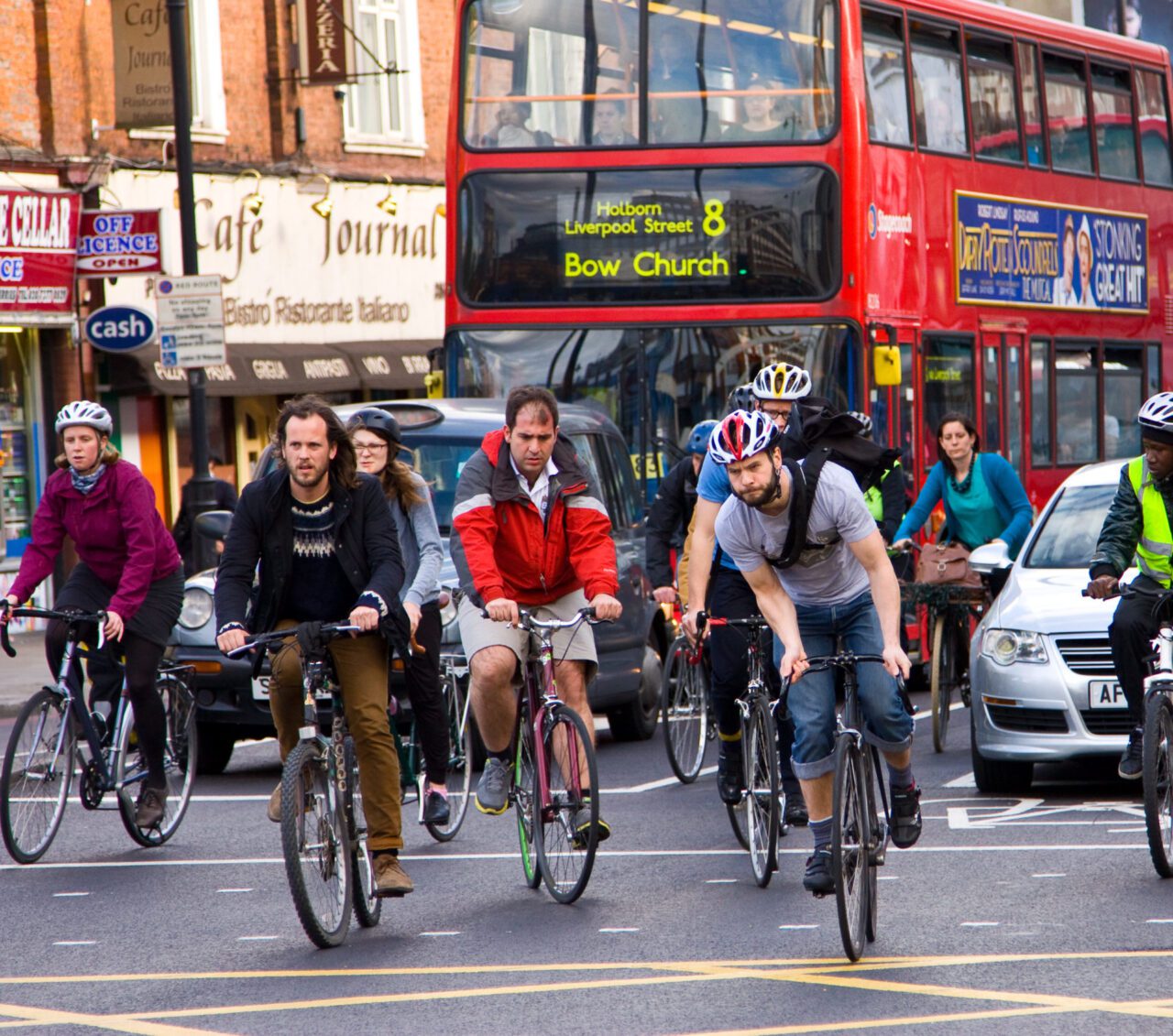Why compulsory bicycle insurance makes no sense

Periodically, politicians and the media bring up the subject of bicycle registration plates and compulsory insurance and this week it was the turn of Transport Minister, Grant Shapps MP.
According to the idea, cyclists should be compelled to obtain registration plates and pay for insurance, similarly to cars. However, arguments put up in support of these suggestions are weak. Licencing would be costly to administer, pointless, and, most importantly, a further obstacle to cycling, especially at a time where cost of living and reducing global warming are priorities for us all. After all, the UK’s goal to decarbonise the transport system, is reliant on more people engaging in active transport.
What are some of the arguments for registration plates?
Cyclists need to pay to road tax
There is a widespread misperception that Vehicle Excise Duty (VED), which most drivers pay, pays for the construction and upkeep of roads. Based on this fallacy, the notion is that money generated by registering bikes should pay for cycling facilities like bike lanes. In reality, however, council taxes—which almost everyone pays, whether they cycle, walk, drive, or take public transport—make up the lion’s share of transportation budgets. Cyclists would not pay VED in any case as it is linked to emissions, and since they won’t produce any, the cost would be £0 (just as it is for a fully-electric car).
Registration plates will make cyclists obey the law
A prevalent myth is that all cyclists disobey traffic regulations more than other road users and that if they had a registration plate, they would be more law-abiding and less likely to receive tickets. No proof exists that cyclists break traffic laws more frequently than other road users. Current traffic regulations already apply to cyclists—cyclists do receive penalties, as they should.
Registration plates will help with theft
It would be beneficial to register all bicycles, but it shouldn’t be required. A compulsory registration would put an unnecessary and expensive barrier to cycling take up. Currently, volunteer registration programmes are accessible.
What are the inherent problems with compulsory registration?
Accessibility
Cycling has the advantage of being a means of transportation that everyone can use, regardless of age. Would kids need a licence? If not, would they be unable to ride a bike until they reach the legal age to do so? Cycling is an accessible and pleasurable exercise form; if registration plates were required, many would lose access to it.
Expense
Some Canadian cities have considered registering bikes, including Toronto and Ottawa. It was discovered that licencing regimes almost always result in higher expenses than income. For instance, Ottawa calculated that a bicycle registration programme would cost $100,000 annually but only generate $40,000 in revenue. In addition to preventing more people from cycling, a registration system would be costly.
Enforcement
It is unlikely that the Police will devote any additional resources to enforcing cycling violations, given that an unregistered bicycle or an unlicensed cyclist does not pose a significant risk to anyone. They don’t invest significant resources in enforcing rules for car drivers; why would they suddenly jump all over cyclists?
Environment
In 2020 Mr Shapps announced the UK Government’s plan to decarbonise the transport system by 2050. If it became compulsory to register bikes, and for all cyclists to have insurance, participation would inevitably drop and this would most definitely impact this target, in particular the goal to accelerate active transport.
In short, introducing bicycle registrations would be costly to administer and impossible for the Police to enforce. Further, it would create an obstacle for increased cycling take-up. Any impediment to someone getting on a bike is counterproductive because we all gain from it.
Political parties interested in promoting road safety can introduce various tried-and-trusted measures, such as expanding driving and cycling education programmes, lowering speed limits, increasing traffic calming, and improving public bike-sharing schemes. Politicians’ most crucial actions are to enhance safety, improve infrastructure and accelerate the transition from motorised to human-powered transportation.







